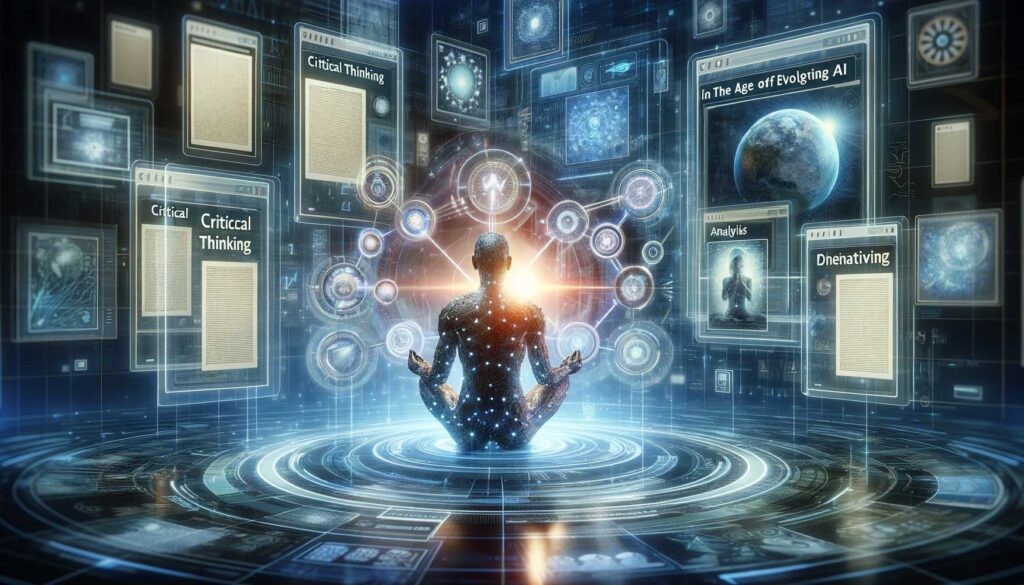In the realm of technological advancement, Generative AI stands as a beacon of innovation, poised to revolutionize industries and transform our daily lives. Yet, like any powerful tool, it comes with inherent risks that demand careful consideration and a well-informed approach.
The Subtlety of Misinformation
One of the most significant concerns surrounding Generative AI is its ability to generate convincing yet false information. This poses a grave threat in an era where fake news, deepfake videos, and counterfeit images are increasingly difficult to discern from reality. The ease with which Generative AI can manipulate data can erode trust in information sources and hinder our ability to make informed decisions.
Data Privacy and Security Risks
Generative AI systems often rely on vast amounts of personal data to train and improve their algorithms. This raises alarming concerns about user privacy and data security. The potential misuse or exposure of sensitive information could have severe consequences for individuals and society as a whole.
Job Displacement and Ethical Dilemmas
As AI becomes increasingly adept at tasks traditionally performed by humans, concerns arise about job displacement. From writing articles to creating art, the prospect of automation raises questions about the future of work and the need to adapt and reskill our workforce. Additionally, the ethical considerations surrounding AI-generated content, such as ownership rights and the definition of art, require careful deliberation.
Dependence and Diminishing Human Skills
Overreliance on AI for tasks that once demanded human skill and judgment could lead to a decline in critical thinking and problem-solving abilities. As we become increasingly reliant on machines to make decisions, we run the risk of losing the ability to independently analyze, evaluate, and form our own conclusions.
Education and Critical Thinking: The Path Forward
In the face of these challenges, education and critical thinking emerge as powerful tools to navigate the complexities of a world shaped by Generative AI.

Developing a Critical Mindset
Critical thinking is the cornerstone of navigating the digital landscape. It involves not just passively consuming information but actively analyzing, questioning, and evaluating its credibility. In the context of Generative AI, critical thinking means being skeptical of information sources, understanding potential biases in AI-generated content, and recognizing the limitations of AI models.
Comprehensive AI Education
While most discussions focus on teaching people how to use AI tools, equally important is educating them about the inner workings of AI systems. This includes understanding data biases, model limitations, and the ethical considerations involved in AI development and use. Such knowledge equips individuals with the tools to make informed judgments about AI applications.
Encouraging Creativity and Human Judgment
Despite its advancements, AI still lacks the nuanced understanding and emotional depth that come with human experience. Education should emphasize the cultivation of creativity, emotional intelligence, and ethical judgment – areas where humans excel over machines. These qualities are essential for navigating the complexities of a world increasingly shaped by technology.
Promoting Data Literacy
In an era where data reigns supreme, data literacy – the ability to understand, interpret, and question data – is crucial. This skill is particularly relevant when evaluating AI-generated content or understanding AI biases. Data literacy empowers individuals to make informed decisions based on sound evidence.
Lifelong Learning and Adaptability
The rapid evolution of AI technologies necessitates a mindset of lifelong learning and adaptability. The skills and knowledge relevant today may not be so tomorrow. By embracing a culture of continuous learning, we can keep pace with the ever-changing landscape of AI and unlock its full potential.
Conclusion
The convergence of Generative AI and critical thinking is not merely about staying informed or relevant; it’s about cultivating a society that can harness the power of these advanced technologies responsibly, ethically, and sustainably. By fostering a culture that values critical thinking, creativity, and continuous learning, we can navigate the challenges posed by Generative AI and unleash its immense potential for the betterment of humanity.
This article has been created by ChatGPT and SEO optimized by Bard.







